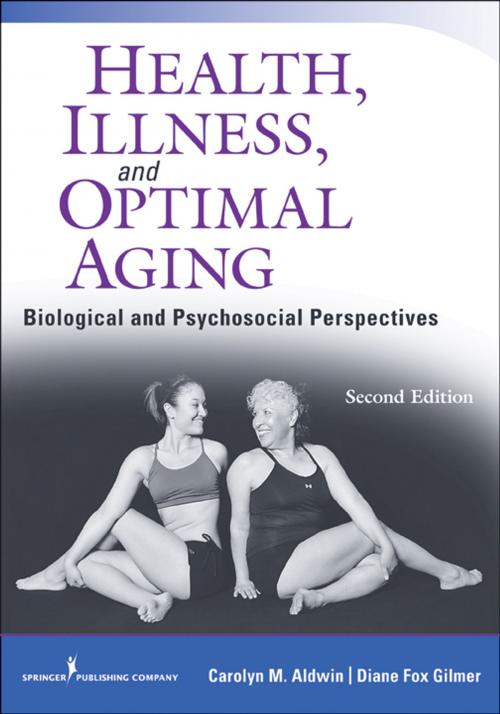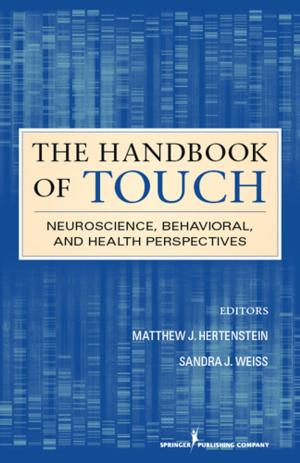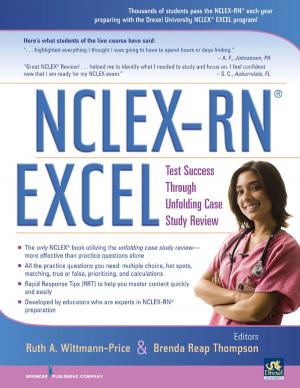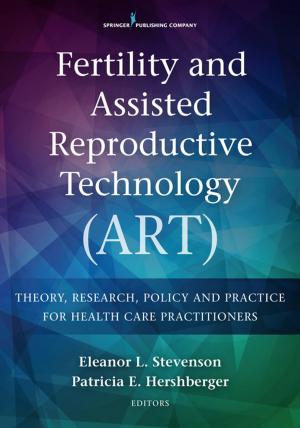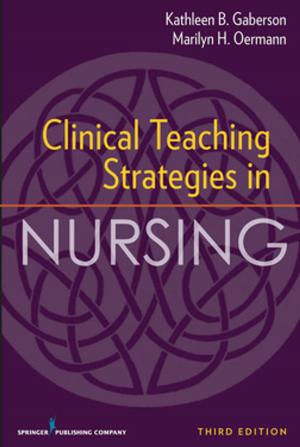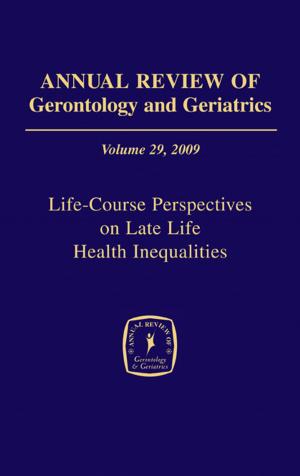Health, Illness, and Optimal Aging, Second Edition
Biological and Psychosocial Perspectives
Nonfiction, Health & Well Being, Medical, Specialties, Geriatrics| Author: | Carolyn Aldwin, Ph.D., Diane Gilmer, Ph.D. | ISBN: | 9780826193476 |
| Publisher: | Springer Publishing Company | Publication: | January 17, 2013 |
| Imprint: | Springer Publishing Company | Language: | English |
| Author: | Carolyn Aldwin, Ph.D., Diane Gilmer, Ph.D. |
| ISBN: | 9780826193476 |
| Publisher: | Springer Publishing Company |
| Publication: | January 17, 2013 |
| Imprint: | Springer Publishing Company |
| Language: | English |
"Aldwin and Gilmer have supplied an interesting textual model for examining health, illness, and aging. Their homogenized approach to aging research is refreshing and insightful."--Anthropology and Aging Quarterly
"Clearly written at a level for college students, this is an excellent resource on aging...Highly recommended.--Choice: Current Reviews for Academic Libraries
Spanning the biological and psychosocial aspects of aging, this upper-level undergraduate and graduate text integrates current findings in biology, psychology, and the social sciences to provide comprehensive, multidisciplinary coverage of the aging process. This new edition incorporates the tremendous amount of research that has come to light since the first edition was published. From a physical perspective, the text examines age-related changes and disease-related processes, the demography of the aging population, aging theories, and how to promote optimal aging. Coverage of the psychosocial aspects of aging encompasses mental health, stress and coping, spirituality, and caregiving in later years.
The authors address demographic, theoretical, and methodological issues on aging, including a worldwide overview of aging demographics. The book reviews biological and psychosocial theories and offers much-needed information on longitudinal design and statistics as they relate to aging research. It discusses the aging of the major organ systems, the brain and sensory systems, and the endocrine and immune systems; basic anatomy and physiology; normal, impaired, and optimal aging; and functional health. Psychosocial factors that affect health are addressed, including the interplay between physical health and mental health, stress, coping, and social support. The text also covers current issues in social gerontology, including such promising new trends as gerontechnology and Green Houses, and provides information on health promotion programs.
New to the Second Edition:
- Information involving retirement, volunteer opportunities, housing, and adaptation to health changes
- Coverage of economics and aging, including information on social security and other retirement income and the future of Medicare and Medicaid
- Significant new information about the regulatory systems
- Revised and updated chapters on death and dying and optimal aging
- Discussions on two models of optimal aging and valuable tips for its promotion
- URLs to relevant websites for additional information
"Aldwin and Gilmer have supplied an interesting textual model for examining health, illness, and aging. Their homogenized approach to aging research is refreshing and insightful."--Anthropology and Aging Quarterly
"Clearly written at a level for college students, this is an excellent resource on aging...Highly recommended.--Choice: Current Reviews for Academic Libraries
Spanning the biological and psychosocial aspects of aging, this upper-level undergraduate and graduate text integrates current findings in biology, psychology, and the social sciences to provide comprehensive, multidisciplinary coverage of the aging process. This new edition incorporates the tremendous amount of research that has come to light since the first edition was published. From a physical perspective, the text examines age-related changes and disease-related processes, the demography of the aging population, aging theories, and how to promote optimal aging. Coverage of the psychosocial aspects of aging encompasses mental health, stress and coping, spirituality, and caregiving in later years.
The authors address demographic, theoretical, and methodological issues on aging, including a worldwide overview of aging demographics. The book reviews biological and psychosocial theories and offers much-needed information on longitudinal design and statistics as they relate to aging research. It discusses the aging of the major organ systems, the brain and sensory systems, and the endocrine and immune systems; basic anatomy and physiology; normal, impaired, and optimal aging; and functional health. Psychosocial factors that affect health are addressed, including the interplay between physical health and mental health, stress, coping, and social support. The text also covers current issues in social gerontology, including such promising new trends as gerontechnology and Green Houses, and provides information on health promotion programs.
New to the Second Edition:
- Information involving retirement, volunteer opportunities, housing, and adaptation to health changes
- Coverage of economics and aging, including information on social security and other retirement income and the future of Medicare and Medicaid
- Significant new information about the regulatory systems
- Revised and updated chapters on death and dying and optimal aging
- Discussions on two models of optimal aging and valuable tips for its promotion
- URLs to relevant websites for additional information
